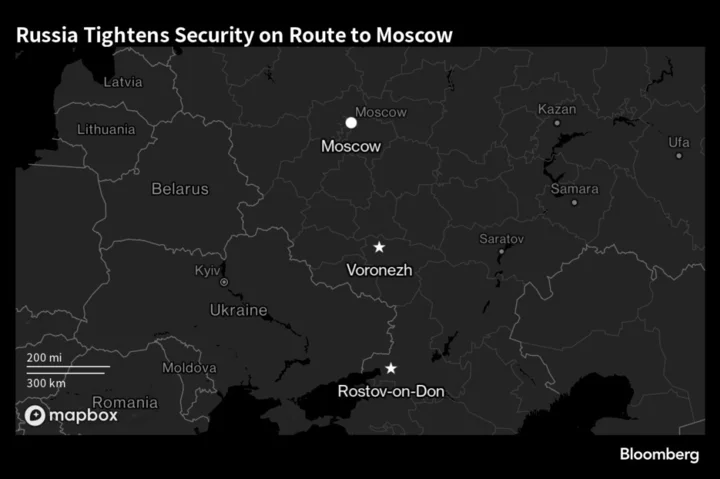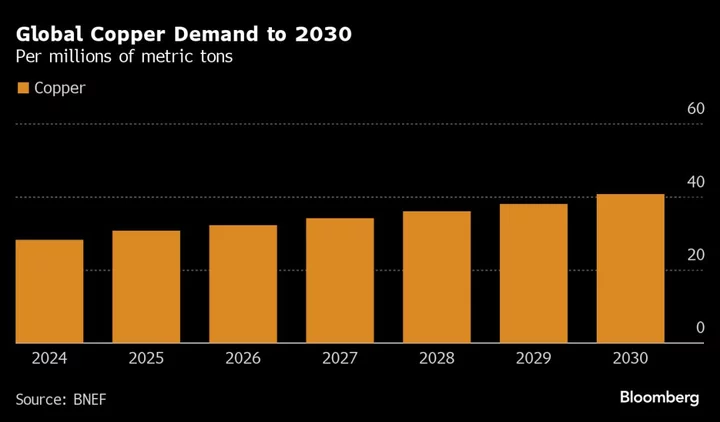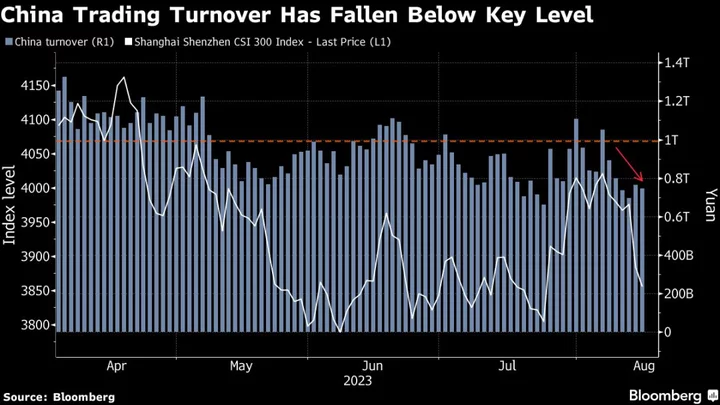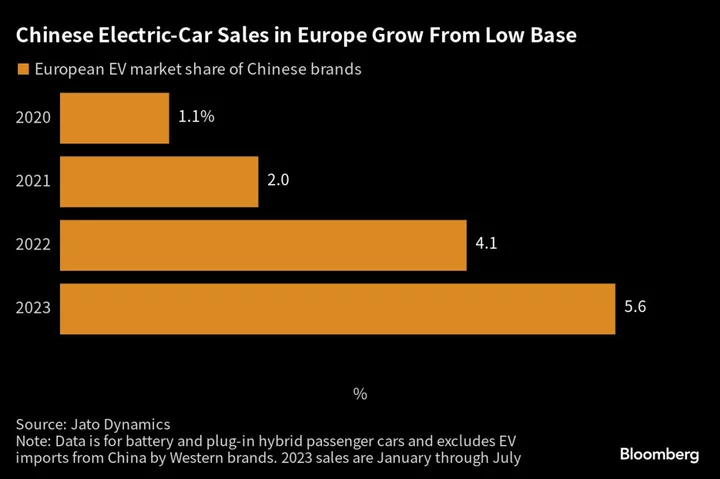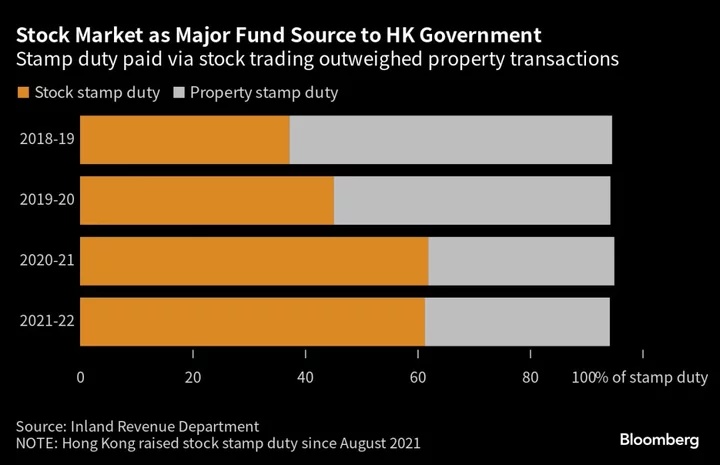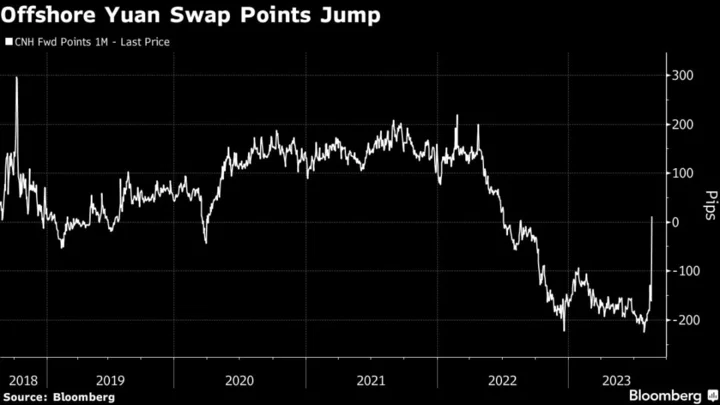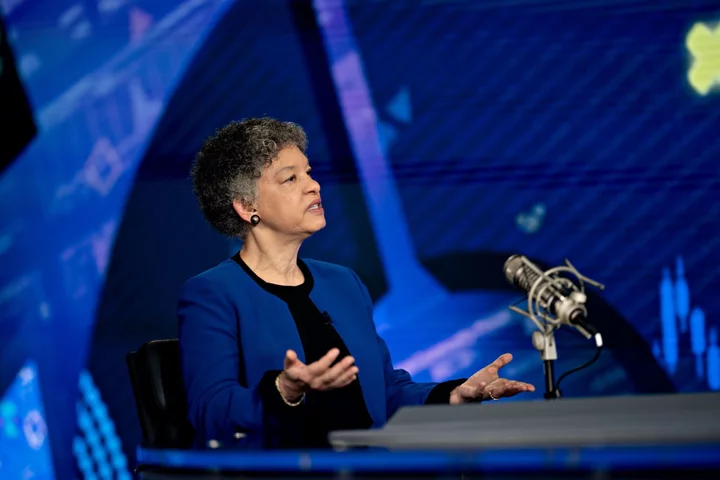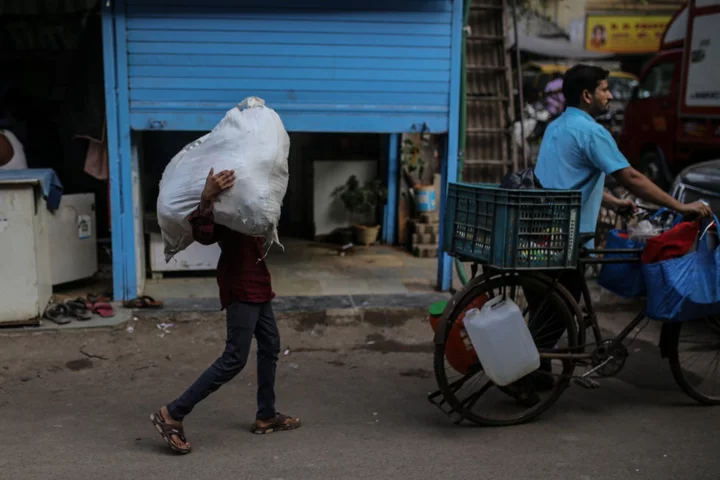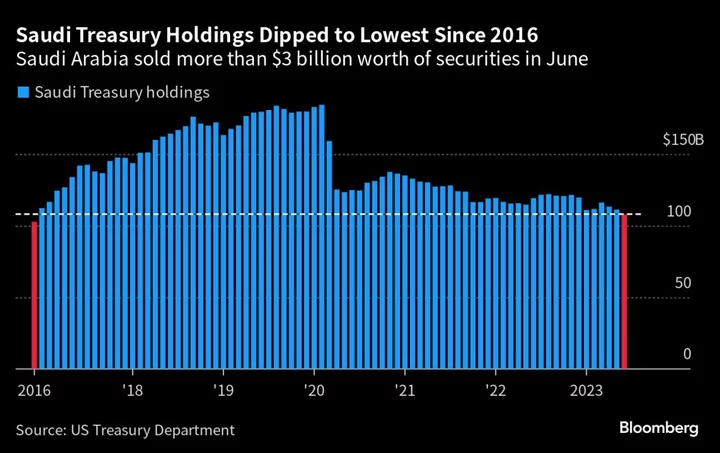Wagner mercenary leader Yevgeny Prigozhin dramatically halted his advance toward Moscow and ordered his fighters to return to their bases, saying he wanted to avoid bloodshed.
“In 24 hours we got to within 200 km of Moscow,” Prigozhin said late Saturday in an audio message on Telegram. “Now is the moment when blood could be shed. Therefore, taking full responsibility for the fact that Russian blood could be spilled, we are turning our columns around and returning to our field camps.”
He didn’t indicate how far back they would withdraw or provide other details. “They wanted to disband PMC Wagner,” he said in the message, without elaborating.
His statement came shortly after Belarusian President Alexander Lukashenko said that he had negotiated with Prigozhin at the request of Russian leader Vladimir Putin and agreed that the advance would stop.
Prigozhin’s announcement capped a day of escalating drama that represented the most serious threat in decades to Putin’s authority, after he accused the mercenary group of “treason” in a TV broadcast to the nation Saturday. Convoys of mercenaries loyal to the Wagner leader had traveled toward the capital during an insurrection that was without precedent in Putin’s nearly quarter-century rule in Russia.
It jolted a country trying to sustain a war in Ukraine that’s the biggest conflict in Europe since World War II and unfolded against the backdrop of a Ukrainian counteroffensive across some of the area where Wagner’s troops deployed for months in the war’s longest and bloodiest battle.
After vowing to lead “a march of justice” on Moscow, Prigozhin posted a video of himself early Saturday at what he said were military offices under Wagner’s control in the southern Russian city of Rostov-on-Don, one of the main operational centers for Russian forces deployed in Ukraine. The claim couldn’t be independently confirmed.
His forces later advanced along the route of the main M4 highway linking Moscow to Rostov. Videos appeared on social media showing military helicopters flying over the city of Voronezh where a fuel storage depot was rocked by an explosion. Regional Governor Alexander Gusev said the depot was on fire, without giving an explanation.
Wagner’s forces were then seen moving through the Lipetsk region about 350 kilometers (218 miles) from Moscow, Governor Igor Artamonov said on Telegram, urging residents to stay in their homes. The governor of nearby Kaluga announced travel restrictions into the region that’s about 160 kilometers (100 miles) from the capital.
Putin didn’t name Prigozhin during his five-minute broadcast in which he said “excessive ambitions and personal interests led to treason” against the state and “the cause for which Wagner fighters and commanders fought and died.” He drew a comparison with divisions in Russia during World War I that led to the 1917 Bolshevik revolution and civil war.
US President Joe Biden earlier Saturday held talks on the unfolding situation in Russia with French counterpart Emmanuel Macron, German Chancellor Olaf Scholz and UK Prime Minister Rishi Sunak. The leaders also affirmed their “unwavering support” for Ukraine, according to a White House statement.
With the Wagner fighters approaching, Moscow Mayor Sergei Sobyanin had declared Monday a non-working day for all but essential services and advised residents to avoid traveling around the city, saying roads may be blocked off in the “complicated” situation.
Officials earlier announced a “counter-terrorist regime” in Moscow and its surrounding region as well as in Voronezh region. Photographs appeared on social media of roadblocks on approaches to the capital.
(Updates with more detail throughout.)

